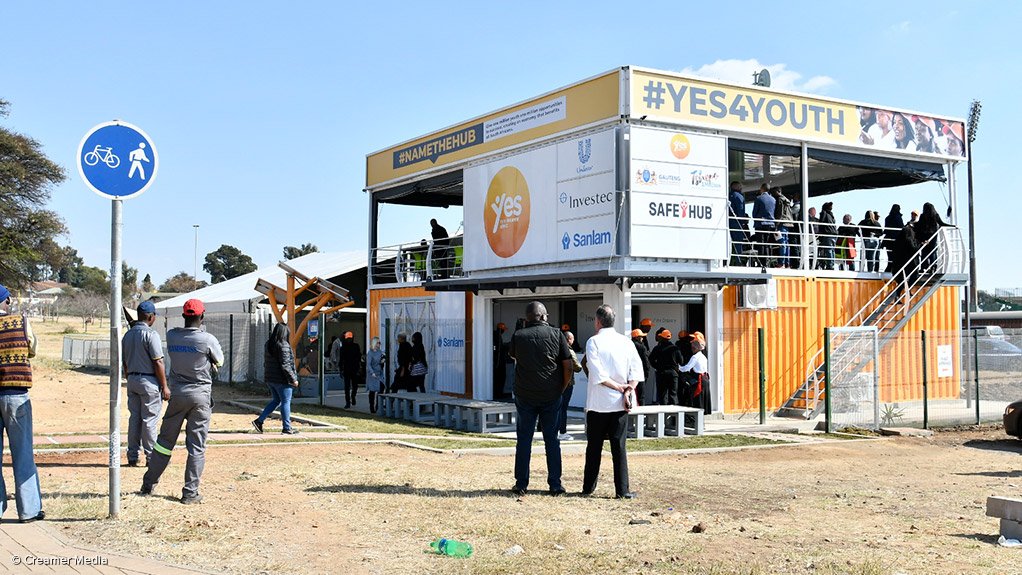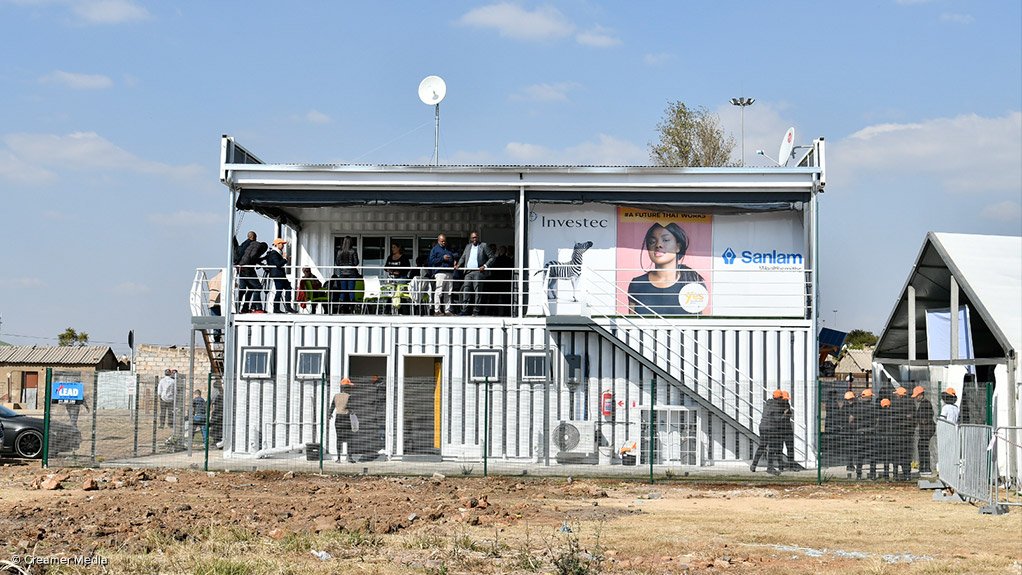Government’s business-led employment initiative, the Youth Employment Service (YES), on Thursday launched its first community hub, in Tembisa, Gauteng.
YES aims to establish 100 hubs, which are smart infrastructure solutions that aim to address youth unemployment challenges by bringing opportunities to the doorsteps of underserved communities, across the country.
The hubs form part of YES’s small, medium-sized and microenterprise (SMME) development strategy to employ one-million people in three years’ time.
There are currently six-million unemployed youths between the ages of 18 and 34 in South Africa.
YES CEO Tashmia Ismail-Seville explained that the hubs are located where the unemployment rate and impact thereof hits rural communities the most.
“Over 60% of South Africa’s unemployed youths reside in townships and, through the hubs, small businesses will be able to absorb idle youth labour, while igniting local economies and promoting domestic markets,” she noted.
The hubs are equipped with modern technology and skilled staff, and are designed as an inclusive and engaging platform through which existing and aspiring small businesses can elevate their businesses or ideas.
The youth can also access training at the hubs, which positions them for the modern economy.
Ismail-Seville pointed out that each hub will be unique and designed with the community in mind, as well as be aligned to the local economic environment of the area.
The YES hub in Tembisa has been made possible through investments from Sanlam, Investec and Unilever, representing a “true partnership” between government, corporates and the community.
The hubs are financed by corporate partners.
YES TRAINING
Short, demand-led learning programmes will be hosted at the hubs. Training will be invested in critical areas, such as the hospitality and tourism and automotive sectors.
“This will inject sought-after skills into industries that are labour-absorbing and impact on unemployment levels in communities where the YES hubs are located.
“Through providing the necessary core skills training to the youth, they are empowered to take control of their own direction and move into existing corporates, plug critical skills gaps in SMMEs or start their own businesses,” said Ismail-Seville.
The skills training is centred on areas such as digital skills, business literacy and administration, business innovation and industry-specific training.
EMAIL THIS ARTICLE SAVE THIS ARTICLE ARTICLE ENQUIRY
To subscribe email subscriptions@creamermedia.co.za or click here
To advertise email advertising@creamermedia.co.za or click here













